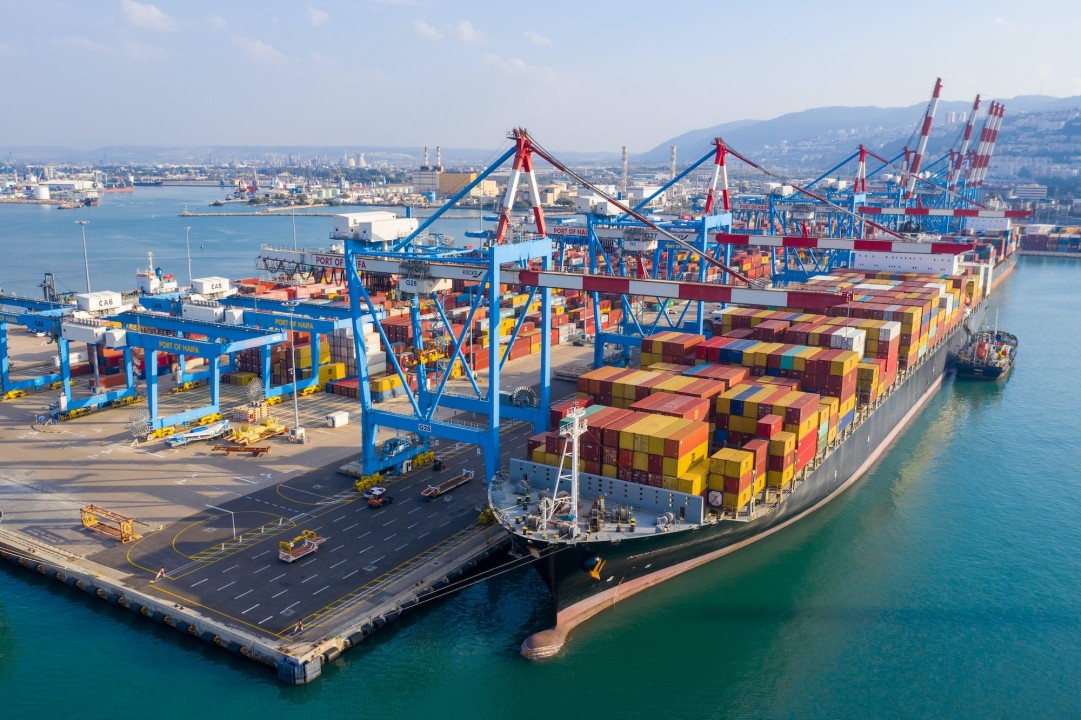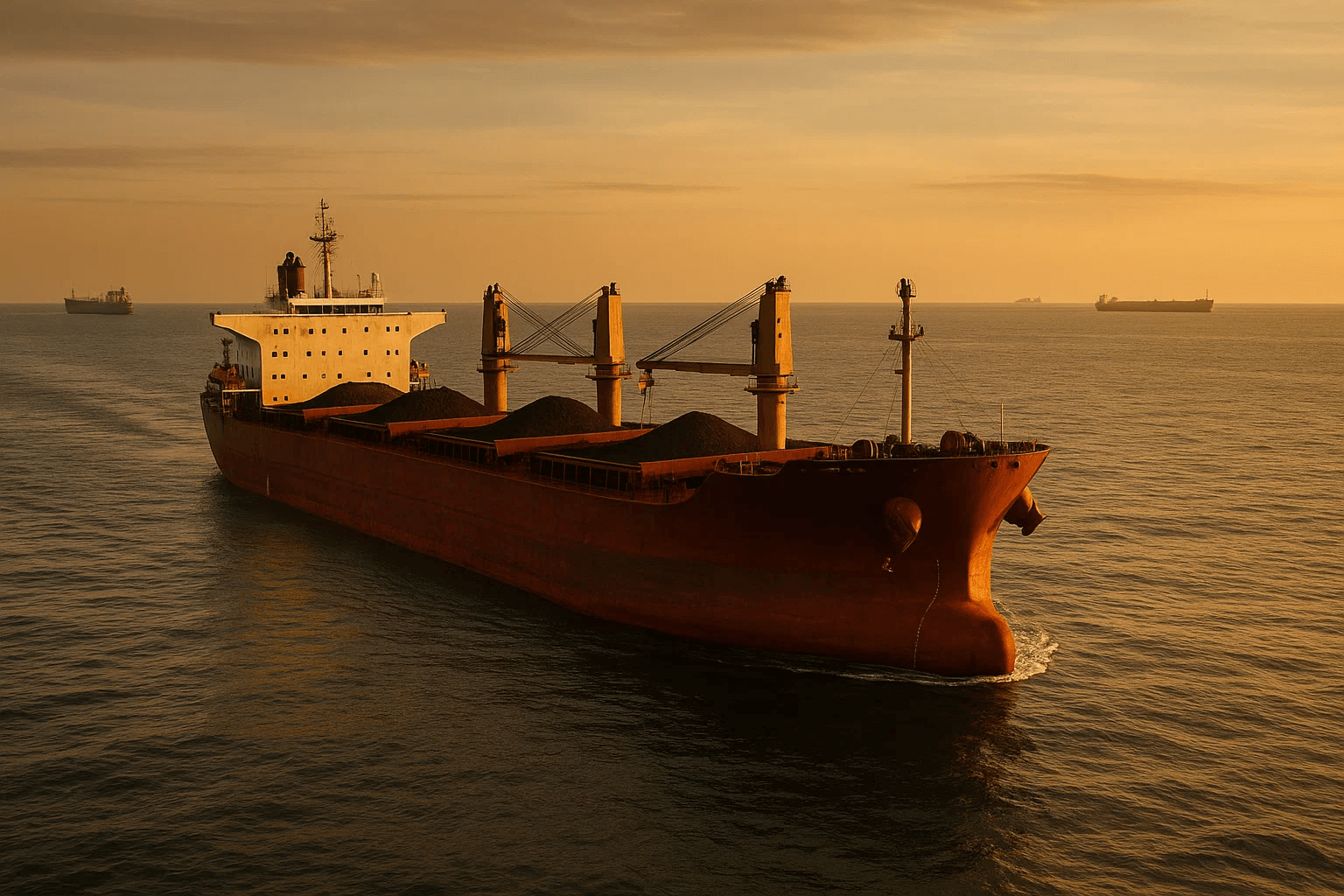In the midst of the current conflict between Israel and Hamas, the global maritime industry is facing a series of unprecedented challenges. Beyond the geopolitical and humanitarian aspects of the situation, the insurance and maritime transportation sectors find themselves in uncharted waters, where current decisions could redefine the future of maritime trade.
Last week, a significant Taiwanese cargo shipping company invoked a force majeure clause, a contractual safety net for extraordinary events like wars and natural disasters. They abruptly canceled a scheduled stop at the Port of Ashdod in Israel, citing the “persistent insecure situation” as the cause. The Port of Ashdod, a crucial gateway for goods entering and leaving Israel, is strategically located on the Mediterranean coast but is dangerously close to the conflict zone, just 31 miles from the Gaza border.
For the Evergreen Line, the risks associated with docking in Ashdod became insurmountable. They diverted the Ever Cozy vessel to the Port of Haifa in northern Israel, creating a ripple effect in the global supply chain. Goods destined for Ashdod now face a longer route from Haifa to reach their final destinations. Consequently, Ashdod has begun to show fewer ships docked or waiting to enter, while Haifa has had to absorb the increased maritime traffic.
The decision by the Evergreen Line to avoid Ashdod is not an isolated case. Other shipping companies and their insurance firms are re-evaluating the wisdom of calling on Israeli ports amid the ongoing conflict. Israeli waters were already classified as high-risk for maritime operations, and the current situation has caused insurance premiums to skyrocket by several hundred percentage points. The impending Israeli ground invasion of Gaza further accentuates the risks and financial burdens associated with routes between Israel and maritime ports.
The elevated insurance premiums for Israeli waters reflect the potential danger that merchant vessels may encounter during operations in these areas. As Neil Roberts, the secretary of the Joint War Committee, emphasizes, “No one wants to go into a port and not be able to get out, as happened in Ukraine.” Shipowners and insurance companies have had to revise their assessments of Israel’s ability to ensure safety during the conflict.
Simon Lockwood, a maritime executive at WTW, a global insurance broker, underscores the current focus of insurance companies and shipowners: “What insurance companies and shipowners are currently looking at is Israel’s ability to repel attacks. The fact that Hamas has conducted numerous attacks this month has already led to a several-hundred-percentage-point increase in risk premiums for voyages to Israeli ports.”
These rising costs are passed on to consumers, as various shipping companies have added surcharges ranging from $50 to $100 per standard-sized container. As Lockwood points out, “Shipowners pass the risk on to their customers – that’s how war risk always works. But it’s also a matter of risk appetite.”
The evolving assessment by shipping companies and their insurance firms of the Israel-Hamas conflict and the possibility of a broader regional conflict is of great importance to Israel. The country is heavily reliant on maritime trade due to its strategic location. Even before the conflict, docking at Israeli ports was a complex undertaking, often involving weeks of waiting before entry, with operational queues of up to 60 ships simultaneously.
The new threat of missiles and other calamities affecting ships in Ashdod exacerbates these preexisting challenges. But the situation doesn’t stop there; the imminent conflict with the Lebanese militia Hezbollah introduces significant risks for nearby Haifa. As Dryad Global, a maritime risk consultancy, emphasizes in their analysis, “If Hezbollah from southern Lebanon were to come into play, the threat level to the Port of Haifa would instantly rise. While not a direct target, the risk of collateral damage to ships and potential operational disruptions would be of considerable concern.”
Israeli Prime Minister Benjamin Netanyahu’s recent statement regarding Hezbollah underscores the seriousness of the situation: “We will hit it with a force it cannot even imagine, and the significance for it and the Lebanese state will be devastating.” This combative language was intended to deter Hezbollah, but the group appeared undeterred, as demonstrated by clashes between Israeli forces and Hezbollah at the Israel-Lebanon border.
While Hezbollah may remain unfazed by Netanyahu’s rhetoric, shipping companies and their insurance firms are not. They operate from a strong apolitical standpoint, but their services are indispensable to Israel, which is heavily reliant on maritime trade. If they were to decide that calling on Israeli ports is too risky, the country could face severe supply shortages.
Currently, the war risk premium for a ship calling at Ashdod averages around 0.70% of the total value of the vessel. In comparison, the Port of Tripoli in Libya, also at high risk, has a base rate of 0.45%, the same as Haifa. Libyan ports like Benghazi and Mukalla apply relatively lower base rates of 0.13 and 0.16%, respectively. Ports in Hudaydah and Salif in Yemen cost 0.75%, while Aden and Mukalla have base rates of 0.38%. Surprisingly, even the Port of Mogadishu in Somalia has a lower premium than Ashdod, at 0.5%. Only ports on the Black Sea in Russia and Ukraine apply significantly higher war risk premiums than Ashdod, at 1% of the total value of the vessel.
In conclusion, the growing risks in the region are pushing the maritime and insurance industries to adapt and reevaluate their strategies in response to the evolving threat landscape. As conflicts in the Middle East continue to unfold, Israel’s ability to secure its ports and shipping routes remains a critical factor for all parties involved in maritime trade and insurance. The outcome of these deliberations will have profound repercussions on the global movement of goods and Israel’s ability to maintain the flow of essential supplies.






